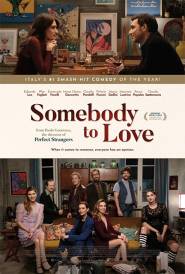Charles Darwin his life, his voyage of scientific discovery on HMS Beagle and the great surge of scientific research into natural history that he inspired.
Attention will be given, for example, to two young contemporaries, Joseph Hooker and Thomas Huxley, who followed the more famous scientist on Royal Navy voyages to the South Seas (including Australia) and collected further remarkable evidence in support of his theory of evolution.
Hooker visited Hobart while serving as an assistant surgeon on HMS Erebus during the 1839-43 Ross Antarctic expedition. With the assistance of Tasmanian collectors he published the first comprehensive description of the island s flora.
Thomas Huxley was assistant surgeon on HMS Rattlesnake on its survey of northern Australia and New Guinea in 1846-50.
The seminar In the wake of the Beagle Science in the southern oceans from the age of Darwin will be presented by the Australian National Maritime Museum and the Australian Research Council at the National Maritime Museum, Darling Harbour.
It will coincide with the opening of the National Maritime Museum s exhibition Charles Darwin Voyages and ideas that shook the world.
The symposium is open to everyone. Registration for the two days (9.30 am 6 pm) is $50, for one day $25. Light refreshments will be served in the morning and afternoon breaks. Registration also includes an inspection of the new exhibition.
Attention will be given, for example, to two young contemporaries, Joseph Hooker and Thomas Huxley, who followed the more famous scientist on Royal Navy voyages to the South Seas (including Australia) and collected further remarkable evidence in support of his theory of evolution.
Hooker visited Hobart while serving as an assistant surgeon on HMS Erebus during the 1839-43 Ross Antarctic expedition. With the assistance of Tasmanian collectors he published the first comprehensive description of the island s flora.
Thomas Huxley was assistant surgeon on HMS Rattlesnake on its survey of northern Australia and New Guinea in 1846-50.
The seminar In the wake of the Beagle Science in the southern oceans from the age of Darwin will be presented by the Australian National Maritime Museum and the Australian Research Council at the National Maritime Museum, Darling Harbour.
It will coincide with the opening of the National Maritime Museum s exhibition Charles Darwin Voyages and ideas that shook the world.
The symposium is open to everyone. Registration for the two days (9.30 am 6 pm) is $50, for one day $25. Light refreshments will be served in the morning and afternoon breaks. Registration also includes an inspection of the new exhibition.
MORE





